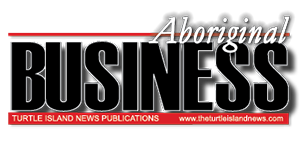By Sean Vanderklis,
Local Journalism Initiative Reporter
Stanley (Bobby) Henry, a lecturer with the Faculty of Education at Brock University will host an online lecture in recognition of Treaty Week that is open to the public.
Henry is a member of the Cayuga nation and an expert on treaties that were signed by the British crown and First Nations. He said understanding treaties requires all parties to consider from both perspectives especially for treaties that exceed written records.
“The oral agreements and these perspectives are fundamental in forming a holistic understanding of treaties, before the oral accounts and oral history is erased from Canada’s history,” he said.
“The focal point for this week’s conversation will surround how Indigenous knowledge systems underpin treaties in relation to the Dish with One Spoon, Silver Covenant Chain, and Two-Row Wampum Belt, which encompass the Niagara region and southern Ontario.”
In 2016, the Ontario government passed legislation declaring the first week of November as Treaties Recognition Week.
According to the Ontario government website, this annual event is intended to highlight, educate and honour the treaties. Ontario is covered by 46 treaties and other agreements.
Treaties are legally binding agreements that set out the rights, responsibilities and relationships of First Nations and the federal and provincial governments. They form the basis of the relationship between Indigenous and non-Indigenous people.
The government of Ontario’s website also said that despite the promise of early treaties and partnerships they established, Indigenous peoples were targeted by colonial policies designed to exploit, assimilate and eradicate them.
Robyn Bourgeois, the University’s Acting Vice-Provost, Indigenous Engagement, said “Whether Indigenous or not, we are all treaty people and it’s important for all Canadians to have knowledge of and familiarity with treaty education.”
Early treaties covered arrangements such as hunting, fishing and harvesting rights, the establishment of reserve land and payment of annuities, among others.
Modern-day treaties, those signed after 1975, cover topics land use management, resource revenue sharing and financial settlements.
Bourgeois called Henry an invaluable resource for Brock and “a respected knowledge carrier regarding our local treaties.”
“I’ve regularly asked him to deliver these teachings in my classes,” said Bourgeois. “He’s highly skilled at sharing these teachings, especially to a general non-Indigenous audience.”
Treaty rights are enshrined in Section 35 of the 1982 Canadian Constitution.
This event, supported by the Office of Human Rights and Equity, will run from 3 to 5 p.m. on Nov. 5 and is open to everyone.
Sean Vanderklis is a Local Journalism Initiative reporter for the Niagara Falls Review, covering education issues across Niagara. His reporting is funded by the Canadian government through its Local Journalism Initiative.
 Aboriginal Business Magazine Your source for Aboriginal Business News
Aboriginal Business Magazine Your source for Aboriginal Business News


